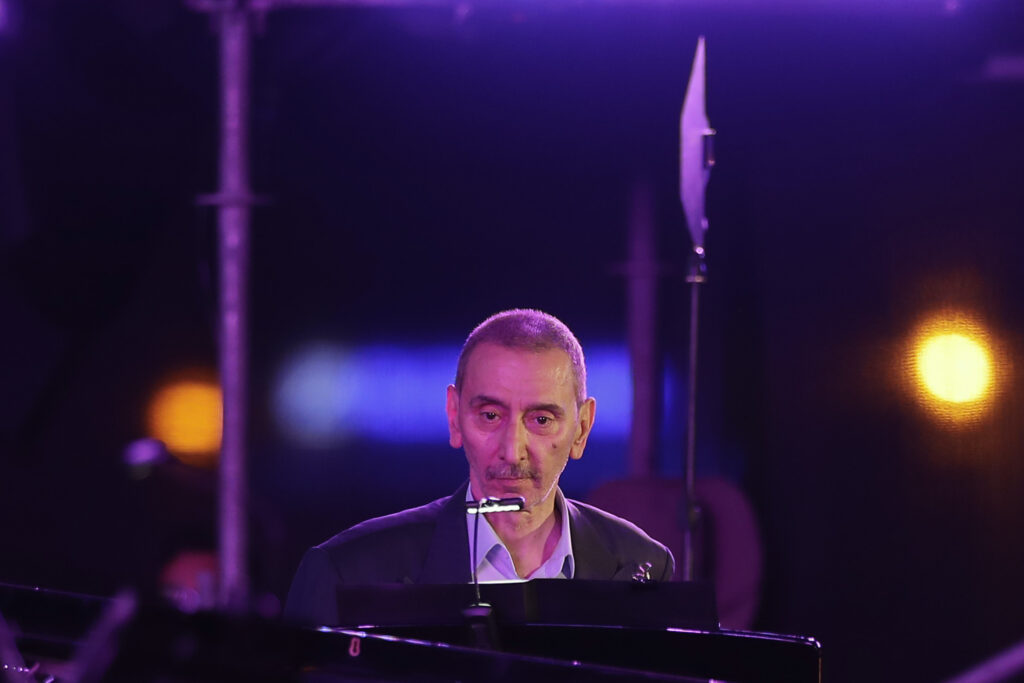Renowned Lebanese musician and composer Ziad Rahbani, son of music icon Fairuz and pioneer of Oriental jazz, died on Saturday aged 69 after revolutionising Lebanese theatre and music.”On Saturday at 9:00 am (0600 GMT), the heart of the great artist and creator Ziad Rahbani stopped beating,” said a statement from the Beirut hospital where he was being treated.He had long suffered from health problems.Tributes poured in for the enfant terrible of Lebanese music — a musician, composer and theatre producer who made a huge mark on generations of Lebanese with his theatre pieces and songs, which many know by heart.Rebellious and visionary, his work evoked Lebanon’s civil war even before it erupted in 1975, later reflecting the eventual conflict itself and the harsh realities of economic crisis.One of his most famous theatre pieces, the 1980 production “Film Ameriki Tawil” (The American Motion Picture), was a satirical depiction of Lebanon during the civil war, set in an asylum with characters who represented facets of society.Ziad Rahbani was the son of Arab musical icon Fairuz, who turned 90 last year, and the late Lebanese composer Assi Rahbani who along with his brother Mansour modernised Arab music by blending Western, Russian and Latin American sounds with Eastern rhythms.Already adored by older generations, Fairuz became a youth idol when her son began composing jazz-influenced songs for her, calling it “Oriental jazz”.While Fairuz transcended Lebanon’s deep sectarian divides, her son was fiercely left-wing and secular, and spent his life decrying the divisions that ruined his country.”I feel like everything has gone. I feel like Lebanon has become empty,” Lebanese actress Carmen Lebbos, his former partner, wrote on X.Lebanese President Joseph Aoun said in a statement that Rahbani was “a voice that rebelled against injustice, an honest mirror for the oppressed and marginalised”.Prime Minister Nawaf Salam said that “Lebanon has lost an exceptional artist and creative, a free voice who stayed faithful to the values of justice and dignity” and who said “what many don’t dare to say”.Culture Minister Ghassan Salame wrote on X that “we dreaded this day as we knew his health was worsening and that his desire for treatment was dwindling”.
Renowned Lebanese musician and composer Ziad Rahbani, son of music icon Fairuz and pioneer of Oriental jazz, died on Saturday aged 69 after revolutionising Lebanese theatre and music.”On Saturday at 9:00 am (0600 GMT), the heart of the great artist and creator Ziad Rahbani stopped beating,” said a statement from the Beirut hospital where he was being treated.He had long suffered from health problems.Tributes poured in for the enfant terrible of Lebanese music — a musician, composer and theatre producer who made a huge mark on generations of Lebanese with his theatre pieces and songs, which many know by heart.Rebellious and visionary, his work evoked Lebanon’s civil war even before it erupted in 1975, later reflecting the eventual conflict itself and the harsh realities of economic crisis.One of his most famous theatre pieces, the 1980 production “Film Ameriki Tawil” (The American Motion Picture), was a satirical depiction of Lebanon during the civil war, set in an asylum with characters who represented facets of society.Ziad Rahbani was the son of Arab musical icon Fairuz, who turned 90 last year, and the late Lebanese composer Assi Rahbani who along with his brother Mansour modernised Arab music by blending Western, Russian and Latin American sounds with Eastern rhythms.Already adored by older generations, Fairuz became a youth idol when her son began composing jazz-influenced songs for her, calling it “Oriental jazz”.While Fairuz transcended Lebanon’s deep sectarian divides, her son was fiercely left-wing and secular, and spent his life decrying the divisions that ruined his country.”I feel like everything has gone. I feel like Lebanon has become empty,” Lebanese actress Carmen Lebbos, his former partner, wrote on X.Lebanese President Joseph Aoun said in a statement that Rahbani was “a voice that rebelled against injustice, an honest mirror for the oppressed and marginalised”.Prime Minister Nawaf Salam said that “Lebanon has lost an exceptional artist and creative, a free voice who stayed faithful to the values of justice and dignity” and who said “what many don’t dare to say”.Culture Minister Ghassan Salame wrote on X that “we dreaded this day as we knew his health was worsening and that his desire for treatment was dwindling”.
